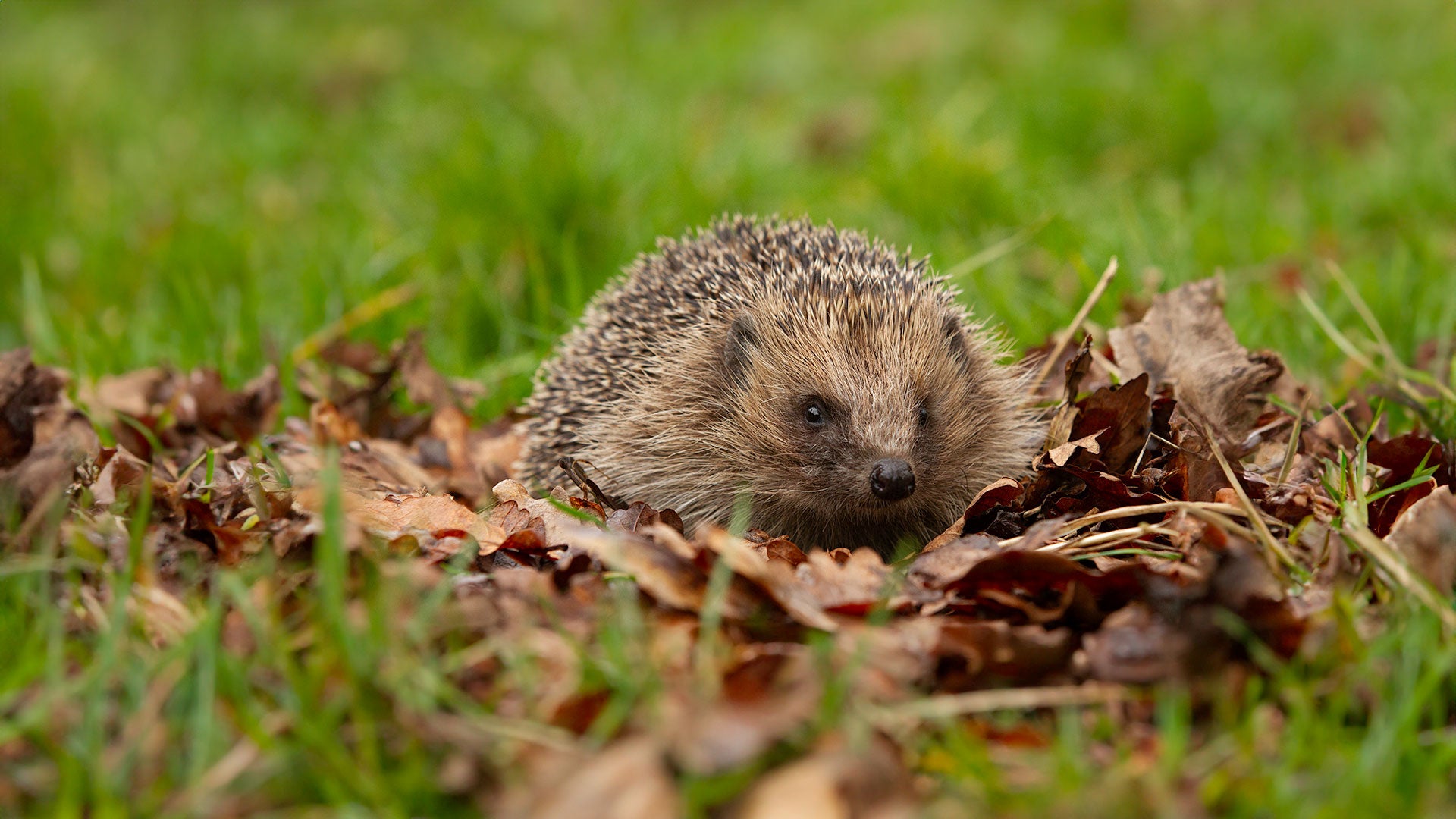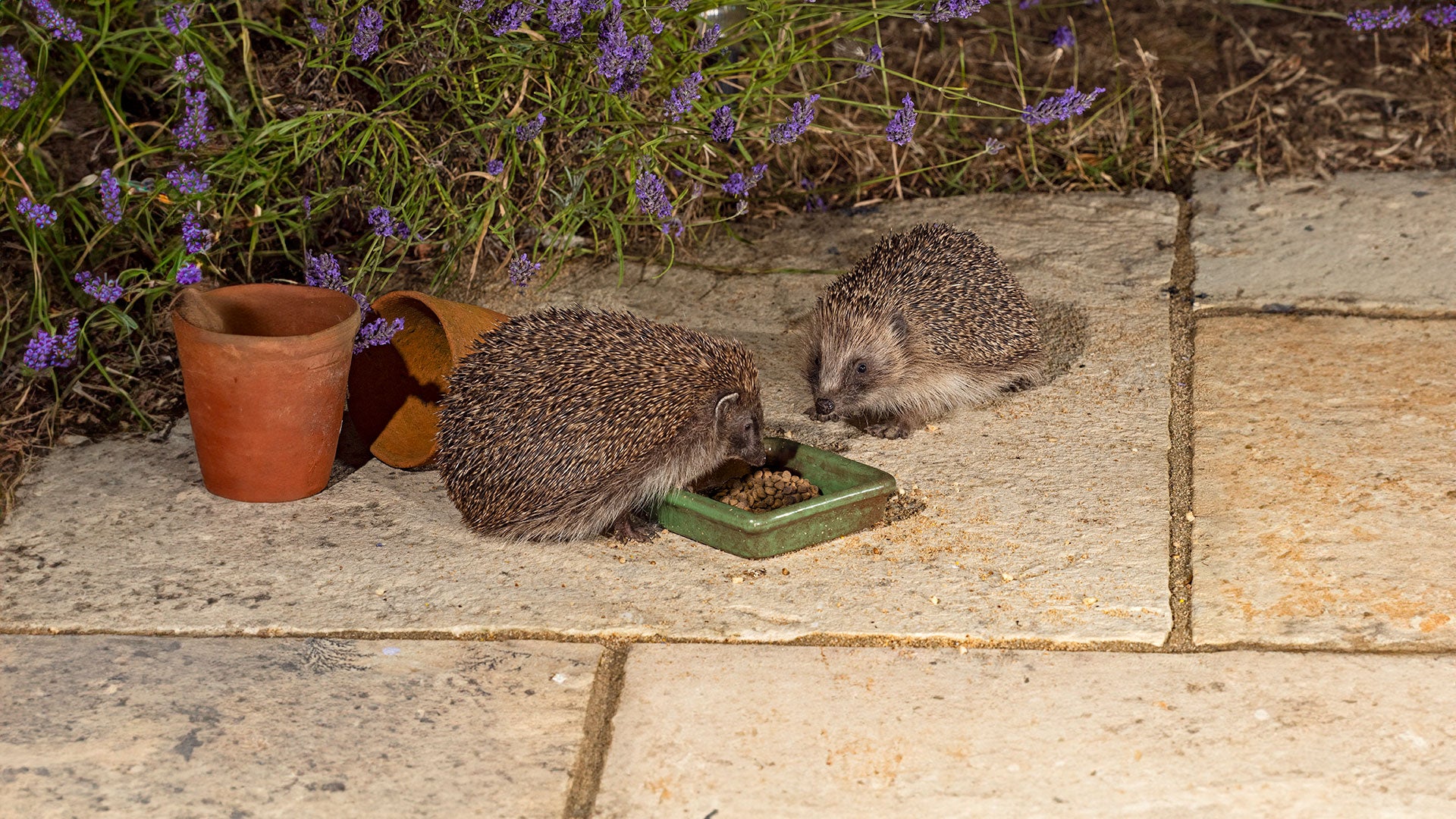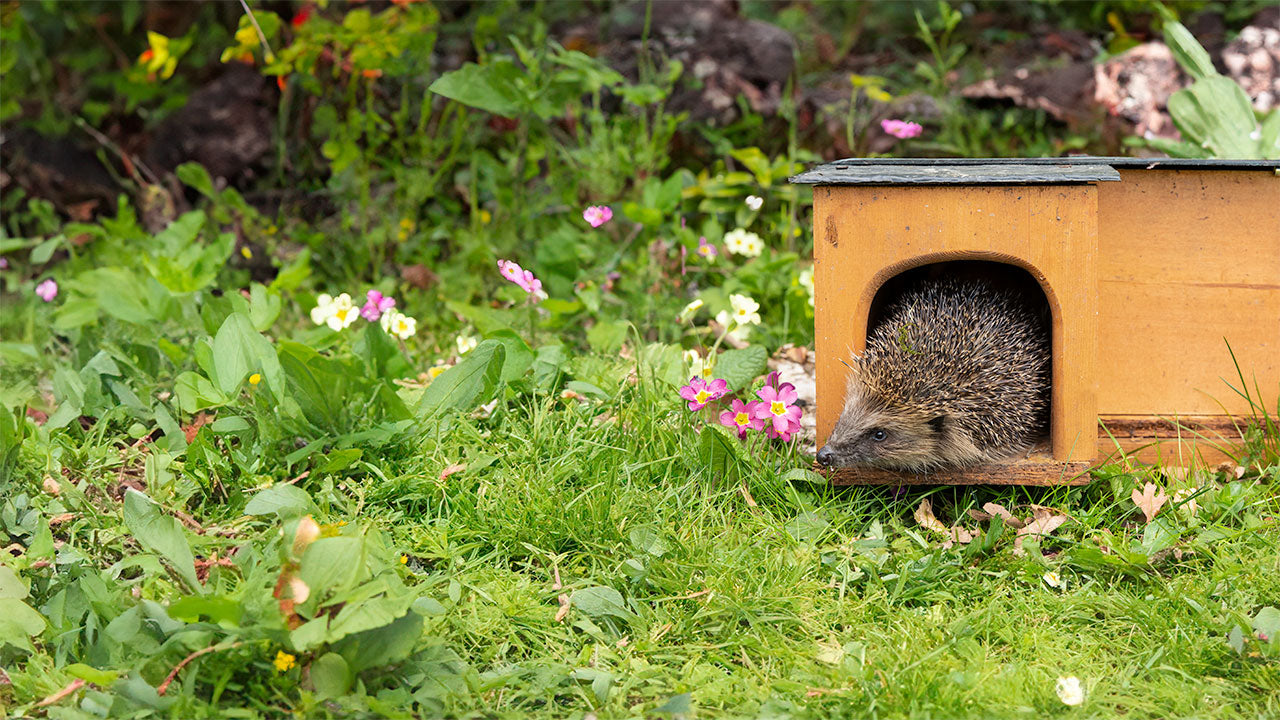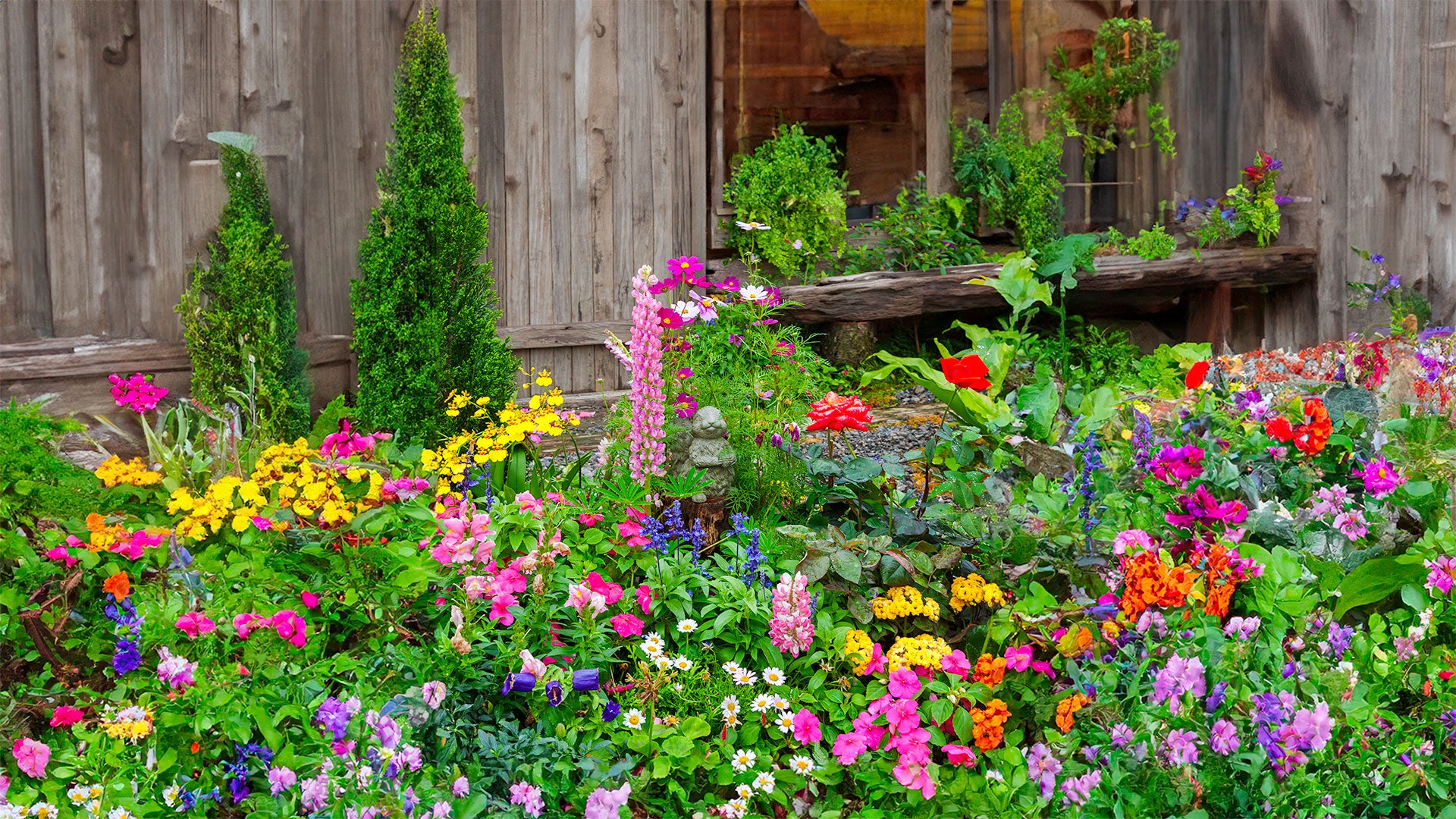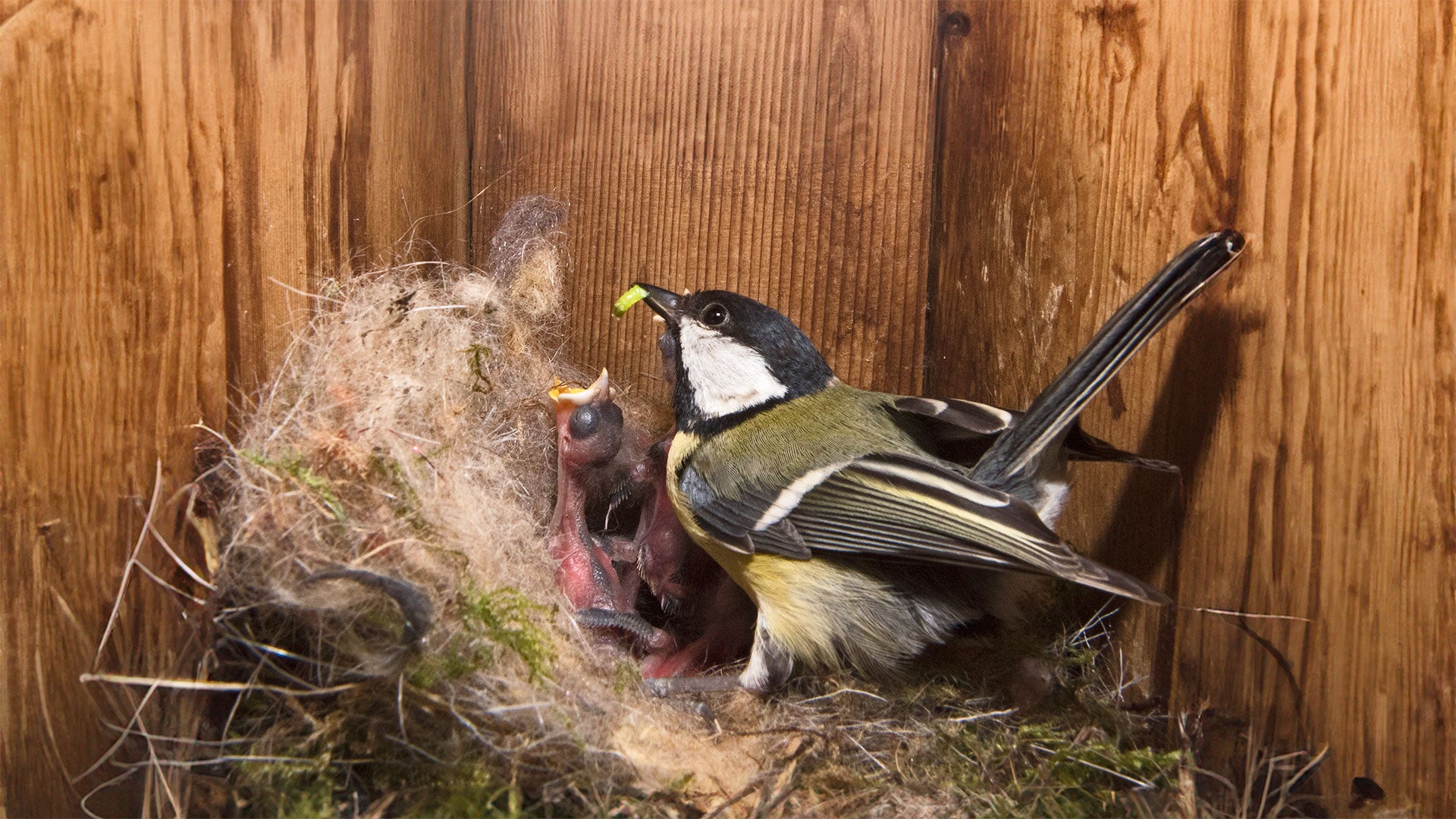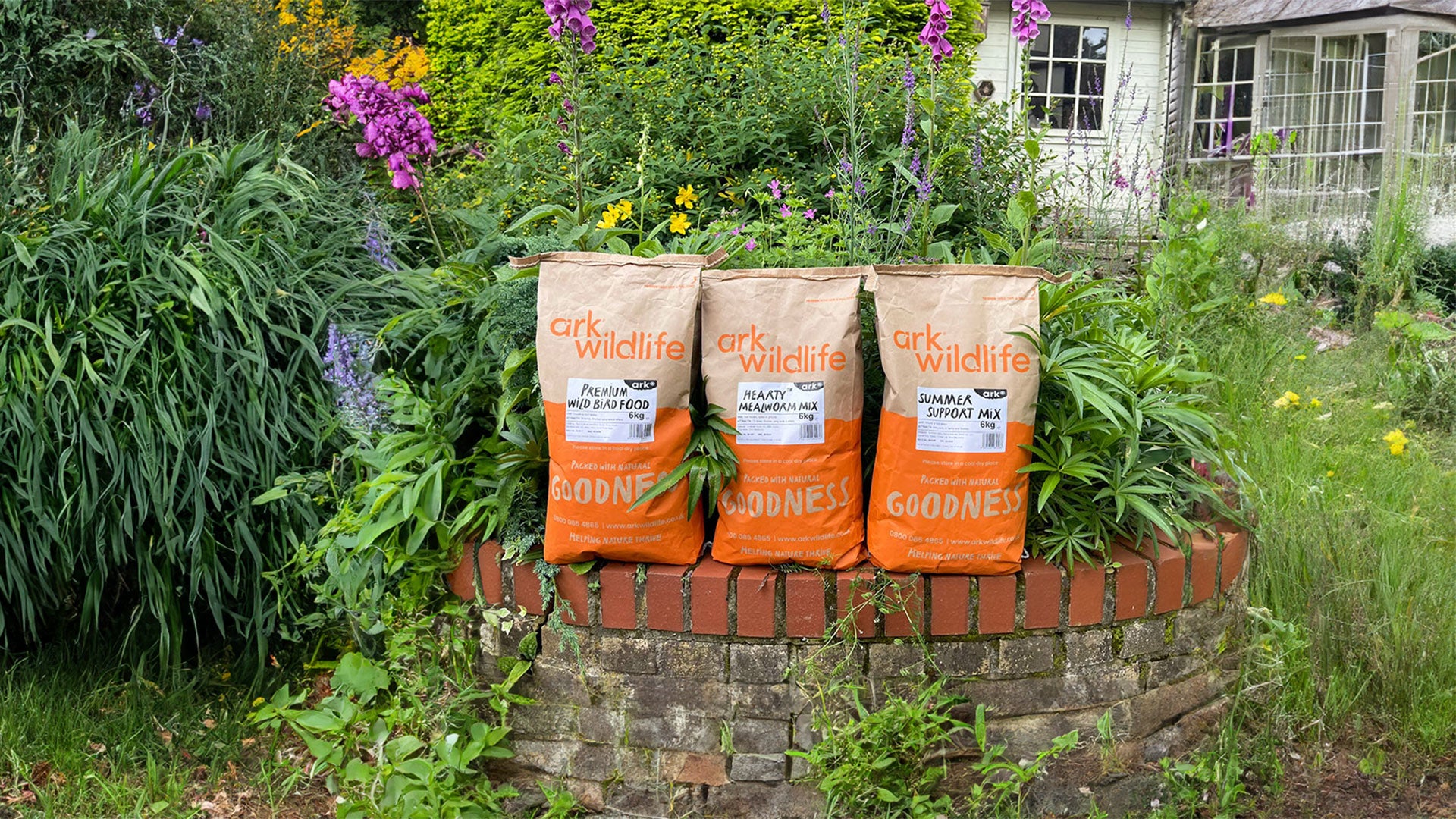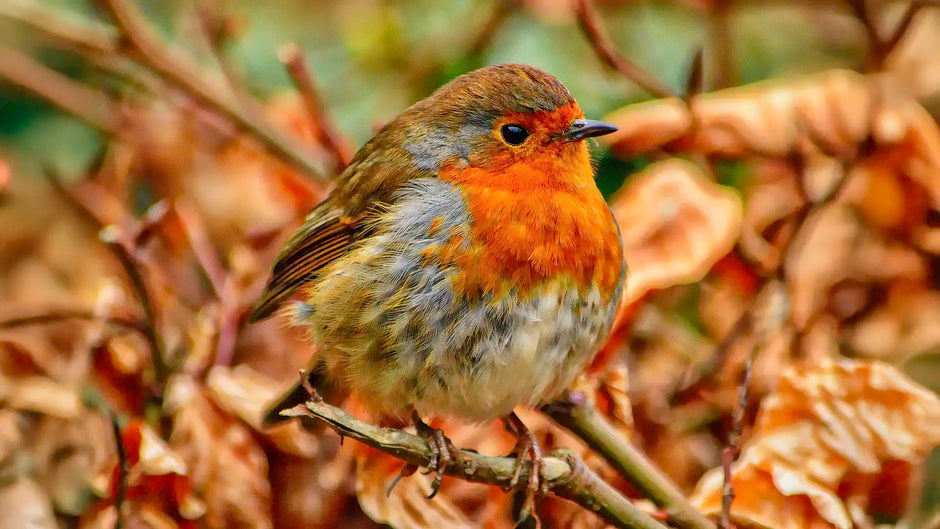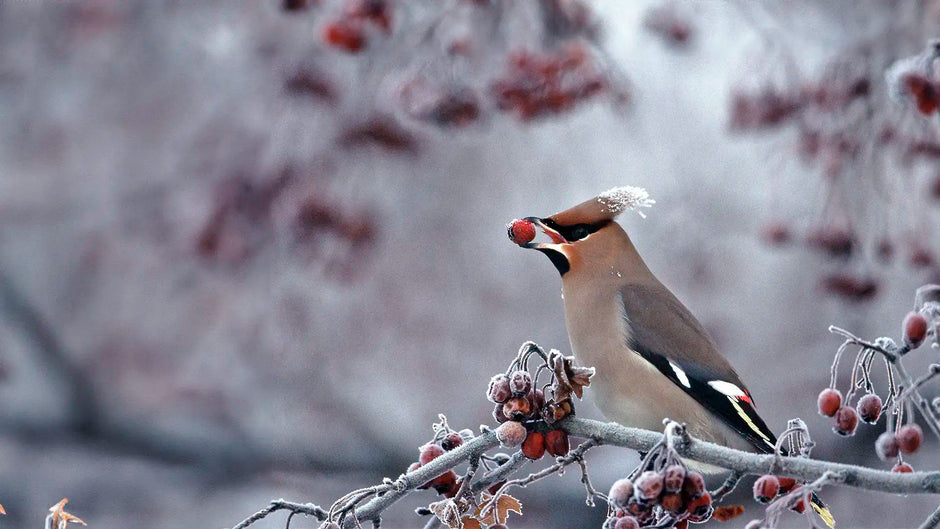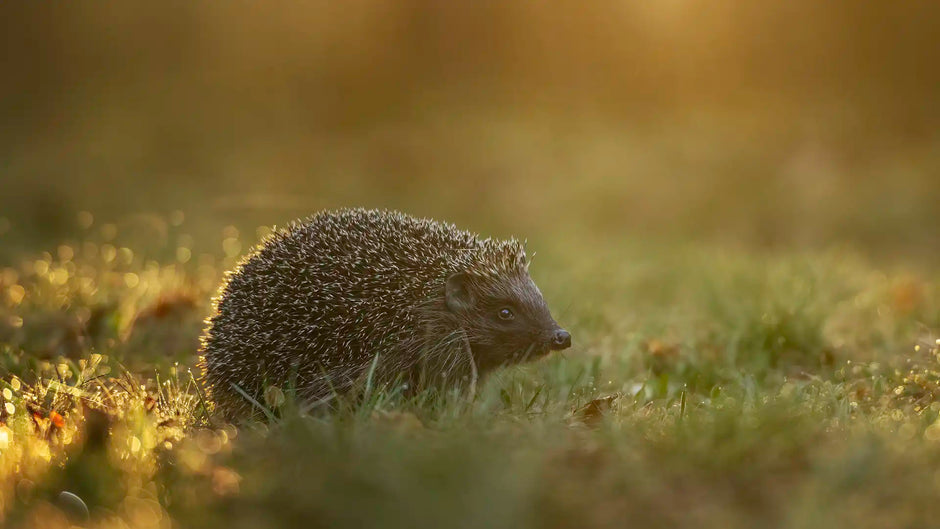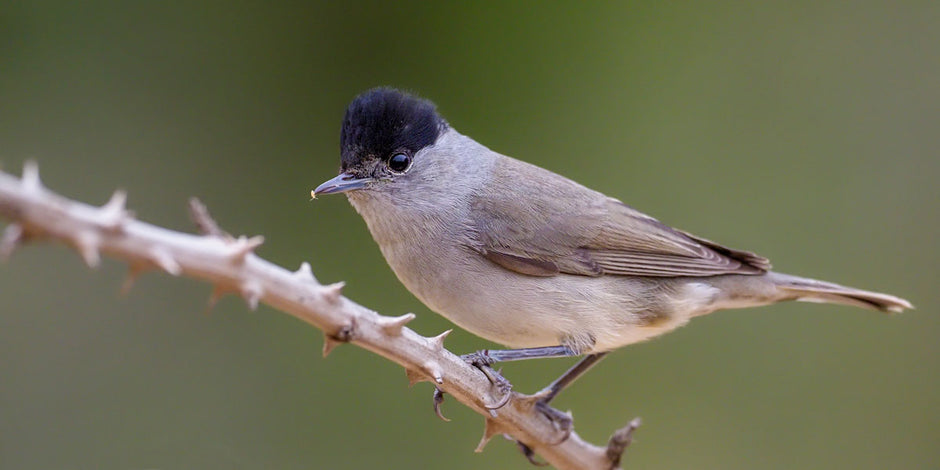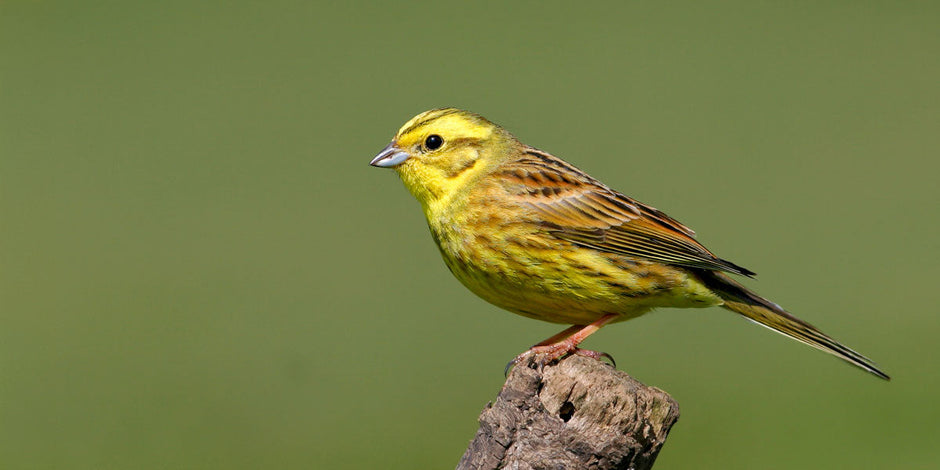(Erinaceinae)
Hedgehogs are nature’s night-time foragers, snuffling through grass and leaf piles in search of their next meal. But what exactly do they eat and drink - and why? Their diet shifts with the seasons, their habitat, and even their health. By exploring what’s really on the menu, we can better understand their needs and see how to support them in our gardens. Here’s a closer look at the menu of one of Britain’s most loved mammals.
What Do Hedgehogs Eat in the Wild?
Hedgehogs are primarily insectivores. Around 70% of their diet comes from invertebrates, but the balance is surprisingly complex.
- Beetles – Especially ground beetles, rich in protein and easy to find in leaf litter.
- Caterpillars and larvae – Soft-bodied and nutrient-packed, ideal for hoglets learning to feed.
- Worms – A reliable food after rain, providing protein and natural hydration.
- Slugs and snails – Not their first choice, but taken when other food is scarce. They’re calorie-rich, if slimy.
Occasionally, hedgehogs will take millipedes, earwigs, or even small vertebrates. It’s not a sign of preference, more a reflection of their opportunistic survival.
The UK’s #1 Bird, Hedgehog & Wildlife Food Shop
Ark Wildlife helping hedgehogs thrive for over 30-years - from nutritious hedgehog food to safe houses and feeding stations.
Rated 5-⭐⭐⭐⭐⭐ by Customers, with FREE Express Delivery and 60-Day Product Guarantee.
Why This Diet Works So Well
Hedgehogs, like us, need a balanced intake of protein, fat, vitamins, and minerals. In a wild, diverse diet, this balance occurs naturally.
- Calcium and phosphorus: Both minerals are vital for bone strength and overall health, but in the wrong ratio they can cause problems. Beetles, worms, and larvae offer different balances, and by foraging widely, hedgehogs maintain a natural equilibrium.
- Vitamin D: As nocturnal animals, hedgehogs aren’t sun-bathers. Instead of relying on sunlight to synthesise vitamin D, they obtain all their nutrients directly from their varied diet, nature’s way of compensating for their night-time habits.
A hedgehog denied sufficient foraging opportunities or eating only one type of food (say, mealworms) risks imbalance. A varied, insect-rich menu ensures strong bones and healthy growth.

Seasonal Shifts in Diet
The hedgehog year is written in its stomach:
- Spring: Fresh from hibernation, hedgehogs need protein to repair muscle and rebuild weight. Beetles and caterpillars provide quick energy.
- Summer: Nursing mothers forage constantly to feed themselves and their hungry hoglets. Soft-bodied insects are vital fuel. Even the most attentive mother may wander off briefly, just as human parents sometimes need a break, hedgehog mums step out to eat, drink, or simply rest.
- Autumn: The race to hibernation. High-calorie foods help build fat stores. If underweight, a hedgehog may forage for longer hours and take risks to access spaces it believes are sources of food.
- Winter: In hibernation, no food is eaten. Survival depends on the fat built up beforehand. Mild spells can wake them, and supplementary garden food may be a lifesaver.
Daytime Foraging – Is It a Problem?
Hedgehogs are nocturnal, but daytime sightings aren’t always a red flag. Youngsters may emerge for extra meals, thirsty hedgehogs will drink whenever they need, and food shortages can push them into daylight hours. Think of it like us humans getting up for a glass of water in the night - a quick errand, not a crisis.
When to worry:
- Signs of shaking
- Staggering or lethargy
- Flies circling or obvious injuries
Otherwise, a daytime hedgehog may just be a busy one.
Town, Woodland, and Farmland Diets
Hedgehogs adapt their diet to what’s available:
- Woodland: Beetles and caterpillars thrive in leaf litter and rotting wood.
- Farmland: Hedgerows provide insects and worms, though modern agriculture reduces diversity.
- Towns & Suburbs: Compost heaps, lawns, and feeding stations replace hedgerows. Urban hedgehogs often rely more on human-provided food, especially in manicured gardens.
This flexibility explains why hedgehogs are now more common in towns than in some parts of the countryside.

What Do Hedgehogs Drink?
Water is essential. In the wild, hedgehogs sip from dew, puddles, and ponds. In towns, these sources are scarce — making a simple shallow bowl of water in your garden one of the most helpful things you can provide.
Never give milk; it causes digestive upset. Fresh water, topped up daily, is perfect.

The Garden Connection
Understanding what hedgehogs eat in the wild helps us see how best to support them. Gardens with log piles, compost corners, and diverse planting encourage natural prey. Supplementary food and water help bridge the gap, especially in urban settings.
For practical advice on what’s safe (and what isn’t) to put out, see our guide: What to Feed Hedgehogs.

Hedgehog Diet FAQs
Why are hedgehogs natural food sources declining?
Factors such as pesticide use, pollution, habitat loss, urbanisation, and intensive farming practices have all led to a decrease in invertebrate numbers, a hedgehog’s natural food.
Why are hedgehog numbers declining?
Hedgehogs naturally forage over wide areas and need access to feed, breed and find suitable places to hibernate. Human interference in the countryside by grubbing out hedgerows, building roads, and putting up fencing between gardens, all stop hedgehogs roaming. With limited access to move about, they find foraging for food more difficult. Roads cause huge numbers of casualties, and gardens become impenetrable fortresses. Overall the loss of accessible and invertebrate rich habitat has negatively impacted their population.
How do hedgehogs find their food?
Hedgehogs forage for their food by sniffing through undergrowth. Their keen sense of smell can detect a tasty worm up to three inches underground. So although they may not have fantastic eyesight, they are able to forage through leaves and dig to find suitable food. Hedgehogs have even evolved a unique way to enjoy one of their favourite foods - slugs. They have a special way of rolling them up to remove their slime before eating them. Ingenious!
What do baby hedgehogs eat?
Hedgehogs will nurse their babies with their milk for up to eight weeks. Foods such as insects are introduced slowly at around six weeks old and mothers leave their young to fend for themselves at around eight weeks old.
How much do wild hedgehogs eat?
Portions vary depending on the time of year but typically an adult hedgehog will consume 70g - 100g of food per night, around 150 calories to survive. This is about 10% of their body weight in food each night. This can increase to about 25% of body weight per night as they prepare for hibernation.
Do hedgehogs eat frogs, mice and birds?
Hedgehogs are opportunistic feeders and will eat frogs, mice or birds that are small enough or slow enough to catch. So, if you’re wondering “Do hedgehogs eat meat?” While they do possess sharp canine teeth, meat is only a small part of their diet and is normally only obtained by scavenging from carcasses.
Do hedgehogs eat eggs?
Birds' eggs are sometimes eaten by hedgehogs. They will gobble them up from ground nests or those that have fallen from tree nests, making a high protein treat for a hedgehog. However, in general, hedgehogs should not eat eggs, especially raw eggs too regularly.
Do hedgehogs eat maggots?
Hedgehogs do eat maggots on occasion, and will eat them in the wild when found on carrion. They do not offer great nutritional value and should only be fed as part of a wider nutritional diet.
Do hedgehogs eat woodlice or spiders?
Woodlice and spiders are a rare part of the hedgehog diet in the UK. Whilst they can and may well be eaten by hedgehogs in the wild, they don’t generally forage for these creatures.
Can hedgehogs eat bread or milk?
No, bread and milk are not suitable for hedgehogs. Bread lacks essential nutrients, is high in salt, and can cause digestive issues. Milk and all dairy products contain lactose which hedgehogs cannot digest, causing diarrhoea which can leave them depleted of nutrients and energy.
Can hedgehogs eat fruit or vegetables?
While hedgehogs are primarily insectivores, they may occasionally consume small amounts of soft fruit or vegetation. However, their digestive system is not designed to process cellulose or plant matter, so these should not constitute a significant part of their diet.
Do hedgehogs eat nuts?
Nuts and seeds can be consumed by hedgehogs safely, but only when they’re eaten alongside other foods to balance the calcium/phosphorus ratio. Hedgehogs can often be seen foraging under bird feeders, and it’s believed that it’s the food that attracts them. However, it’s thought hedgehogs enjoy all the invertebrates that spilt food attracts: worms, slugs, bugs and beetles, every bit as much, if not more, than the seeds themselves. Also, whole nuts like peanuts can get caught in their teeth and cause suffering, so show caution if given as a treat to a hedgehog.


